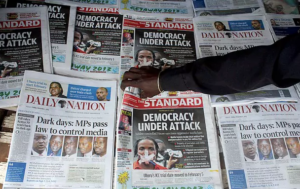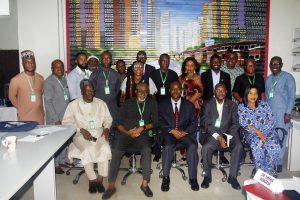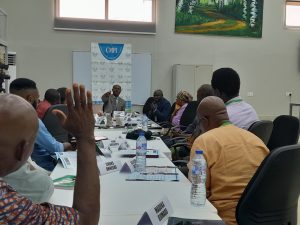Communication Challenged and Political Ideologies in Africa : A Case Study of Ivory Coast
Edmond DOUA, Ph.D. is currently Senior Lecturer and Head of the Department of Information and Communication Sciences at the Faculty of Information, Communication and Arts (Félix Houphouët-Boigny University of Ivory Coast). Expert in Media Communications, Corporate Management, and Marketing, his research fields cover the following areas: Mediation, Arts and Culture, Cultural Industries Marketing, Lobbying and Advocacy Communication, Communication and Media, Institutional Communication and Globalization.
ABSTRACT
This paper examines communication and political ideologies in Africa. With a particular focus on the case of Ivory Coast, the author shows how democracies were put to severe tests on the continent through political doctrines with often clouded and unclear prospects. In Ivory Coast, for example, given the difficulties in designing and implementing inclusive and sustainable development projects, successive political leaders initiated language elements based on demagoguery. The ultimate goal was to promote their ideological concepts, which are at odds with the realities on the ground. In this context, concepts such as Ivoirité, la Refondation and l’Ivoirien nouveau, became subjects of much controversy and rejection by the Ivorien society. The reason is that despite the large media propaganda of the admirers of these slogans, the expected results in terms of promoting social, cultural, economic and political, could not be reached. Instead, these ideologies have rather contributed to divide the people along ethnic and religious lines.
INTRODUCTION
Viewed with anthropological lens, communication is seen as stage for the powerful used to legitimize authority. The public approach posits that this interdisciplinary science is associated with the idea of propaganda, which controls the social representations and mobilizes the governed people. In addition, by tapping into the mass media, communication provides the most favorable way to promote the actions of rulers. It thus becomes a political communication, whose interest is to build this place of expression and confrontation of the constitutive and contradictory legitimacies of mass democracy (Wolton 2016). However, political communication is only possible if citizens identify, in one way or another, speeches meant for them.
For it to be fully achieved, political communication must indeed rest on the dialogic model, bringing together and integrating individuals, public space and the media. These stakeholders must be in an egalitarian interaction in order to achieve together the set common goals (Dacheux, 2016). Thus, to be effective and accepted, a good leader should speak right. In other words, a good political theory should seek a balance between philosophy, which is perceived as ideological or doctrinal convictions, and sociology, which represents empirical acts. Otherwise the rest is a set of mere demagoguery and empty speeches (Schemeil, 2015). In fact, a first series of questions that communication sciences had to deal with lies in the relationships between the technique used to communicate, convince and the truth between seduction and argumentation. In this nebula, how can we locate the communication challenges in the face of the political ideologies meant to establish democracy in the world? What do these concepts actually bring to African societies, which are still unable to assimilate and integrate the very concept of democracy in their political practices? To answer these questions, the paper leans on the experience of Ivory Coast, to discuss the contribution of the ideologies to political thought in Africa. It reviews the functioning of these concepts and their possible pitfalls in their design and implementation.
The assumption here is that, far from being catalysts for the “good practice” of democracy, ideologies remain, conversely, sources of internal division on the continent. In terms of methodology, this paper draws on a rich and varied literature on political science and communication, to develop and place, at first, the conceptual and theoretical framework of the study. It then empirically examines the foundation of political ideologies in Ivory Coast. In this context, it questions political action and identifies the factors of the big “misunderstanding” and the lack of interest of social players in the “political matter.” Finally, it shows how, with this situation, political communication experiences, in practice, obvious problems in Africa and the world.
Download the full paper: communication-challenged-and-political-ideologies-in-africa-a-case-study-of-ivory-coast





